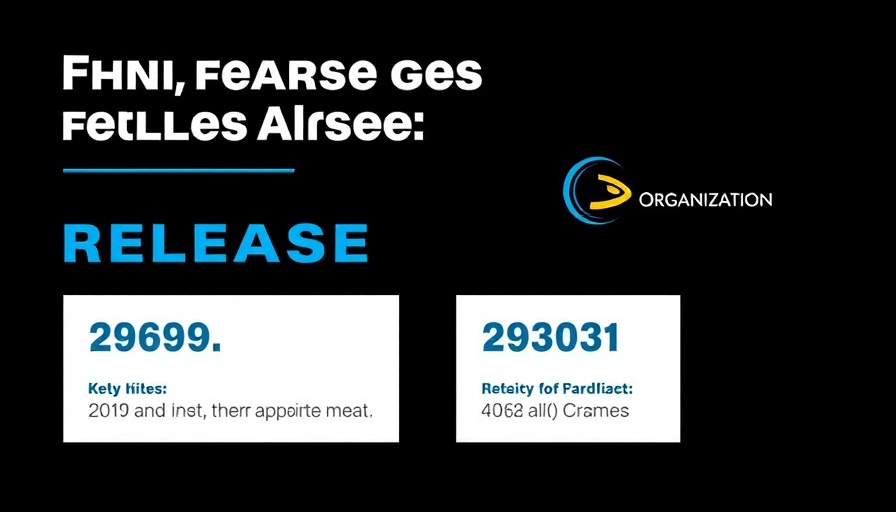
The Evolution of AI: What to Expect from GPT-4.5 and GPT-5
The rapid advancement of Artificial Intelligence has ushered in a new era, with OpenAI set to release GPT-4.5 and GPT-5 in the near future. The implications of these launches are significant for industries across the board, especially as AI models evolve to become more versatile and reliable.
Understanding the Release Timeline
OpenAI has announced that GPT-4.5, codenamed 'Orion,' is anticipated to launch soon, swiftly followed by GPT-5 expected by late May. This progression indicates that OpenAI is not just resting on its past successes but is addressing the rising competition in the AI landscape.
GPT-4.5 will be the last model without chain-of-thought reasoning capabilities. Many experts, including Paul Roetzer from the Marketing AI Institute, are tempering expectations for this model, suggesting it may serve more as a precursor to the revolutionary features anticipated in GPT-5.
Unifying Models for Greater Capability
One of the standout features of GPT-5 will be its ambition to unify the distinct capabilities of different AI models into a singular, more powerful system. As OpenAI’s CEO Sam Altman noted, integrating the reasoning capabilities of the o-series models with the language processing strengths of the GPT series could enable the AI to handle a vast array of tasks more effectively.
This unification could herald a new phase in AI utilization where users will no longer navigate through multiple models and settings. Instead, the AI will discern when to deploy various reasoning techniques, making it significantly more user-friendly.
The Competitive Landscape
As OpenAI gears up for these releases, it faces heightened competition, notably from xAI's Grok 3 and Anthropic's Claude 3.7 Sonnet, both of which have showcased remarkable reasoning capabilities. This new competitive dynamic challenges OpenAI to ensure that its upcoming releases not only meet user expectations but also set new standards in AI capabilities.
Expert Perspectives on AI Adoption
With the anticipated launch of these new models, the question arises: How should businesses respond? The pace of AI development can be overwhelming, and many may wonder if it’s necessary to continually adapt to each new model. As technology evolves, businesses must balance the risks and rewards associated with integrating cutting-edge AI solutions into their operations.
The potential benefits are immense, but organizations must also prepare for the challenges that come with rapid technological progress. Understanding the unique offerings of each model and strategically implementing them can position businesses to capitalize on the latest advancements.
The Future of AI Interaction
As we approach the releases of GPT-4.5 and GPT-5, one thing is clear: the way we engage with AI is set to change dramatically. OpenAI's commitment to reducing complexity, enhancing reasoning capabilities, and consolidating the strengths of its models paves the way for more intuitive and effective AI systems.
Such advancements offer a promising glimpse into the future of AI in professional and personal spheres. The integration of sophisticated reasoning capabilities into daily AI interactions will likely increase productivity and revolutionize task management across various sectors. As anticipation builds, staying informed and prepared will be key to harnessing the full potential of these AI innovations.
In conclusion, the unfolding landscape of AI, especially with the imminent arrival of GPT-4.5 and GPT-5, presents exciting opportunities. To effectively navigate these changes, businesses should begin evaluating their respective strategies for AI integration, ensuring they are ready to adopt these transformative tools upon their release.

Write A Comment